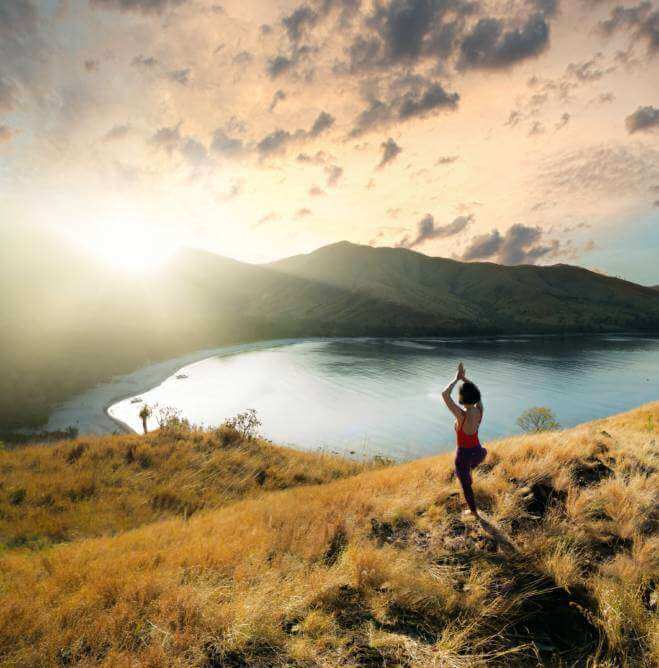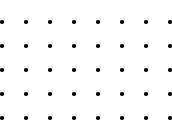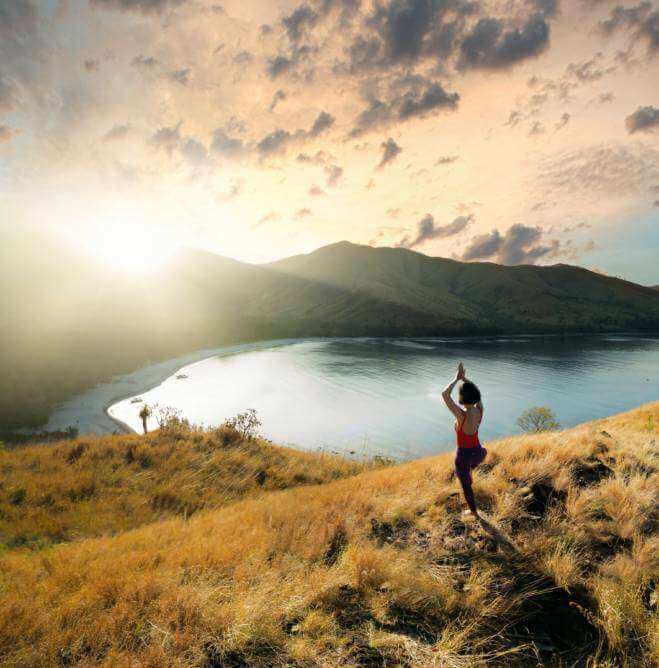
You’ve probably heard the idea that “Discipline equals Freedom,” right? In this post, we’re exploring why that is by uncovering the value of digital nomad routines.
Specifically: We’ll see how to build such habits effectively through the lens of Eli’s decade+ of relevant experience. Hopefully, if we’re lucky, there’ll be a lesson or two we can take away from this for practical use! 🙂
Listen to the full episode here:
Wanna hear more? Subscribe on Stitcher, iTunes, Spotify, or wherever!
First off: What this post is not going to be about
As always, we love a little disclaimer to start off the discussion.
This won’t be about the terminology and psychology of habits. That’s an important topic in its own right — one we recommend everyone look into. Atomic Habits by James Clear is a great resource that dives into timeless ideas like the chain of habit creation: Cue –> Craving –> Response –> Reward.
This discussion, though, will focus more on the connection between habits and the actual lifestyle of long-term travel. What’s the relationship between these two concepts?
Digital nomad routines provide necessary structure
Contrary to some popular beliefs, this lifestyle shouldn’t be completely structure-less. We don’t recommend going “ultra-nomadic” and fully abandoning structure — Eli tried it once and burned out pretty quickly.
Our idea of Nomadism is more complicated than that. It’s a long-term change in locations while still trying to achieve goals. These goals can vary, but at a minimum, they should sustain our journey. This is our meta reality — the online world in which we work to sustain our physical reality. Combining the two realities, though, is hard without defined structure.
This is unlike our idea of travel, which is really just one such reality. It’s all about maximizing enjoyment while changing locations, without those same life goals. (Travel goals are usually more limited in scope — i.e. what-to-do/what-to-see bucket lists). So habits aren’t as important.
To be clear, though, nomadism does retain some of the aspects of “travel mode.” Namely, the beauty and of changes in our environment (from scenery to people to cultures and so on). Nomadism fills our lives with exciting uncertainty in the form of information gaps of being in unfamiliar locations.
But Nomadism also ditches some aspects of travel mode. For instance, the hedonism of pure travel. Why? Two main reasons:
- It can get boring after a while (it’s a lifestyle without depth or craft)
- It’s financially unsustainable in the long-term
Point one is the bigger cause. It’s what we call “travel burnout.” And it’s what happens when you take the uncertainty of new places and add another uncertainty of behavior patterns. That’s why we constantly recommend slow travel as a remedy to travel burnout: Because it lets you pause and form some habits.
Structure is attained by building habits, one at a time
Digital nomad routines depend on habits. It’s through habits that we are able to achieve our goals while living in environments of change.
[Side note: Habits can also be useful to people in travel mode. If you’re traveling but spending time unhappily doing non-travel activities (i.e. watching Netflix), you’re only hurting yourself. But habit is an effective shield against falling into this sort of trap.]
The beauty of habits is they help us manage certain uncertainties that arise. Too much uncertainty actually hurts our freedoms and often causes stress; reducing uncertainty in our own behavior patterns is a key way to mitigate those negatives.
Why are digital nomad routines & habits often so difficult to maintain?
For starters, the constant change in environment makes it harder. As surroundings change, the cues that set off our habit chains fall apart. And this can leave us confused, without that necessary “push” to keep up a habit.
It’s not unusual for travelers to stop exercising or gain weight because of how fluid their daily schedules become. Things like your “customary afternoon run” or “morning trip to the gym” don’t stick as well. Humans naturally adjust habits to each new location. As we build familiarity, these habits slowly get woven in. But unfortunately, they break much faster than they form.
This all being said… There is a powerful silver lining here for us. Just as new locations pose difficulties for maintaining good habits, they also present opportunities to break our bad habits.
Bad habits also depend on cues, so when we change locations, we disconnect from these negative cues and have a chance to start fresh. We always say that going on the road is not going to fix you. Nor will it save you from problems back home. But if your mental & emotional situation is relatively stable, going nomadic is a great way to improve your personal habits.
There is a little additional hack here: You can choose a place where certain customs require you to adopt your desired digital nomad routines. For instance, if you want to cut down on drinking, a few months in a Muslim country might help you. Similarly, aspiring vegetarians might like to spend some time in India.
Overall, though, the biggest advantage to forming digital nomad routines is that they will naturally become anti-fragile. The idea here is that if we manage to find ways to implement habits in changing environments, these habits will be much more resistant to threats.
For example, Covid-19 broke a lot of people’s habits because many cues were taken away. But for nomads used to constant change, habits underwent more of an adjustment than a complete breaking apart.
Practical recommendations: How to actually build nomadic habits
Let’s start here: The fewer habits you want to work on, the better. Especially considering the high degree of change stimulation in our daily nomadic experience.
We want focus. And we want a degree of freedom. So find your “top activities” that bring you fulfillment and focus solely on them. Too many habits may infringe on your freedom.. Finding what works best is a balancing act.
We call the most important of these activities “domino habits.” They’re things that if we do or don’t do, will have a huge impact on the rest of the day. And even beyond.
For instance, one such activity may be shutting off your screens for various periods of the day. Without it, you may have a harder time getting real work done, or you may lose sleep, and one way or another you’ll be deprived into the next day.
Now let’s move on to the most critical recommendation: Choose habits with cues that are always happening, regardless of where you may be. Think: specific hours of the day, meals, when you leave home or arrive back. This helps you entrench your digital nomad routines by preventing uncertainty from getting in the way.
Eli’s personal habit-building tips for everyone — nomads and non-nomads alike
It’s been many, many years of figuring out what does and doesn’t work…
- Considering your day is always evolving in unpredictable ways, I try to put most of my important habits either at the beginning or end of the day. Since these are times and actions with less uncertainty than what’s happening during the day.
- One of the tactics I found most useful is habit stacking (again, see Atomic Habits). It looks like this: Take something that already happens without thinking (i.e. brushing your teeth), and connect a second habit to it. One of mine is “Don’t eat anything that isn’t a fruit/vegetable before doing 10 minutes of exercise.”
- Be ruthless about bad habits when possible. Personal story: Before becoming a nomad, I had a massive TV-watching problem. Most days, I couldn’t turn it off. And then, one day, I cut the antenna cord completely… And I’ve never looked back. Turns out that the version of myself that wants to watch TV is too lazy to buy a new antenna cord, and a simple drastic action was enough to beat it. Forming habits is often just a game of manipulation against your biggest enemy (that is, yourself!).
- Knowing yourself and customizing your habit strategy to your psychology is critical. Personally, I tried to decrease sugar, coffee, and meat consumption for years… And failed miserably for years. Shockingly, it finally did work when I decided to completelydrop them all at the same time. A full-on purge signaled to my brain that they were all off the table; no more uncertainty and self-bargaining. I discovered that I needed a yes-or-no situation to form a lasting habit.
- On that note: No two people’s habit values are the same. For you, maybe watching TV is a positive activity! My good habit may be your bad one. But as long as you know your own psychology, you can understand how to build up the routines that matter while steering clear of your mental weak points.
Final word: Eli’s personal best-selling habits!
This is as much for personal documentation as anything else. Maybe, hopefully, they’ll inspire you in some direction as well!
- I always schedule a call or a focusmate session at 7am on weekdays so I wake up to a structured obligation, but I turn off my computer at 8am and lock all my screens with an actual lock in a bag.
- I don’t eat breakfast or leave home before I completinga 30 minutes exercise, I always walk 30 minutes in the morning, avoid calls before noon since I want this as deep work window. I will also take 2 hours of pure disconnection from work every day where I usually walk or meet friends.
- I stop eating at 6pm and lock all my screens by 9pm in my bag. Every other action that is not a daily habit is written on a to-do list for, since habits are things that I will only be doing in most or all of the days.
- I have a lock screens rule that says that if I am at home without a call in the next 15 minutes, or at any case by 9pm at night, I lock my screens in my bag.
To wrap things up, Jocko Willink has a known saying: “Discipline is freedom,” which I would rephrase a bit for the sake of this post. Let’s instead say: “Structure is Freedom.”
There is a fine line between getting lost (which is a concept we love) and maintaining our freedom by not being won over by reflexes and endorphins. Good luck in your own “Lucha Eterna,” the eternal fight here — it will never end, so you might as well have some fun playing the game!
What do your digital nomad routines look like? Or just your habits in general? Do you have any other suggestions for aspiring habit-builders? Let us know below!



0 Comments